Nuclear 101 Awareness Seminar in Laoag City
- Details
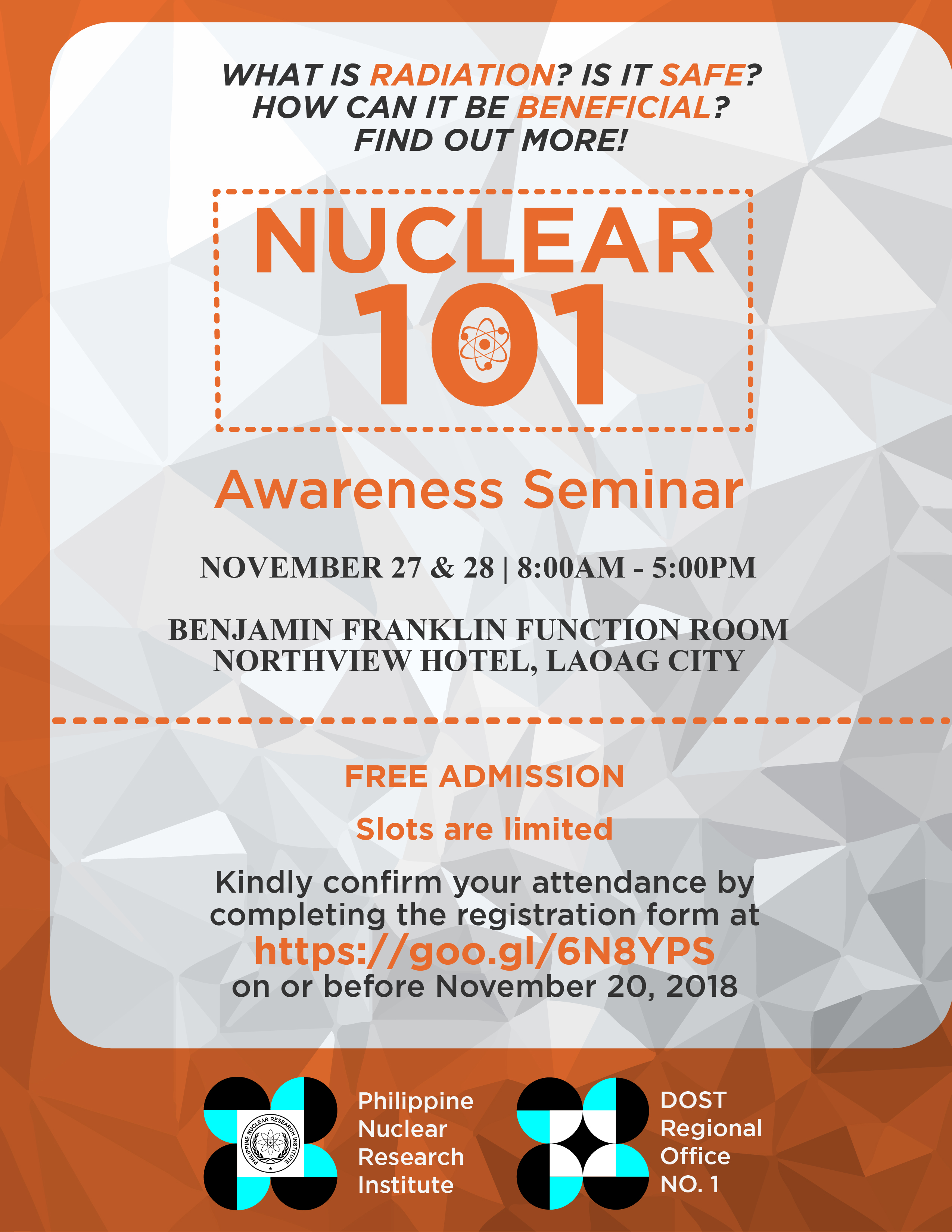
What is Radiation? Is it Safe? How can it be Beneficial? Find out more!
Nuclear 101 Awareness Seminar
November 27 & 28 | 8:00AM - 5:00PM
Benjamin Franklin Function Room, Northview Hotel, Laoag City
FREE ADMISSION
Slots are limited
The DOST-PNRI will provide meals, information kits and certificates for the seminar participants.
Kindly confirm your attendance by completing the registration form at https://goo.gl/6N8YPS on or before November 20, 2018
The seminar objectives and program may be viewed or downloaded at https://goo.gl/6qeo97.
Nuclear 101 Awareness Seminar in Cebu City
- Details
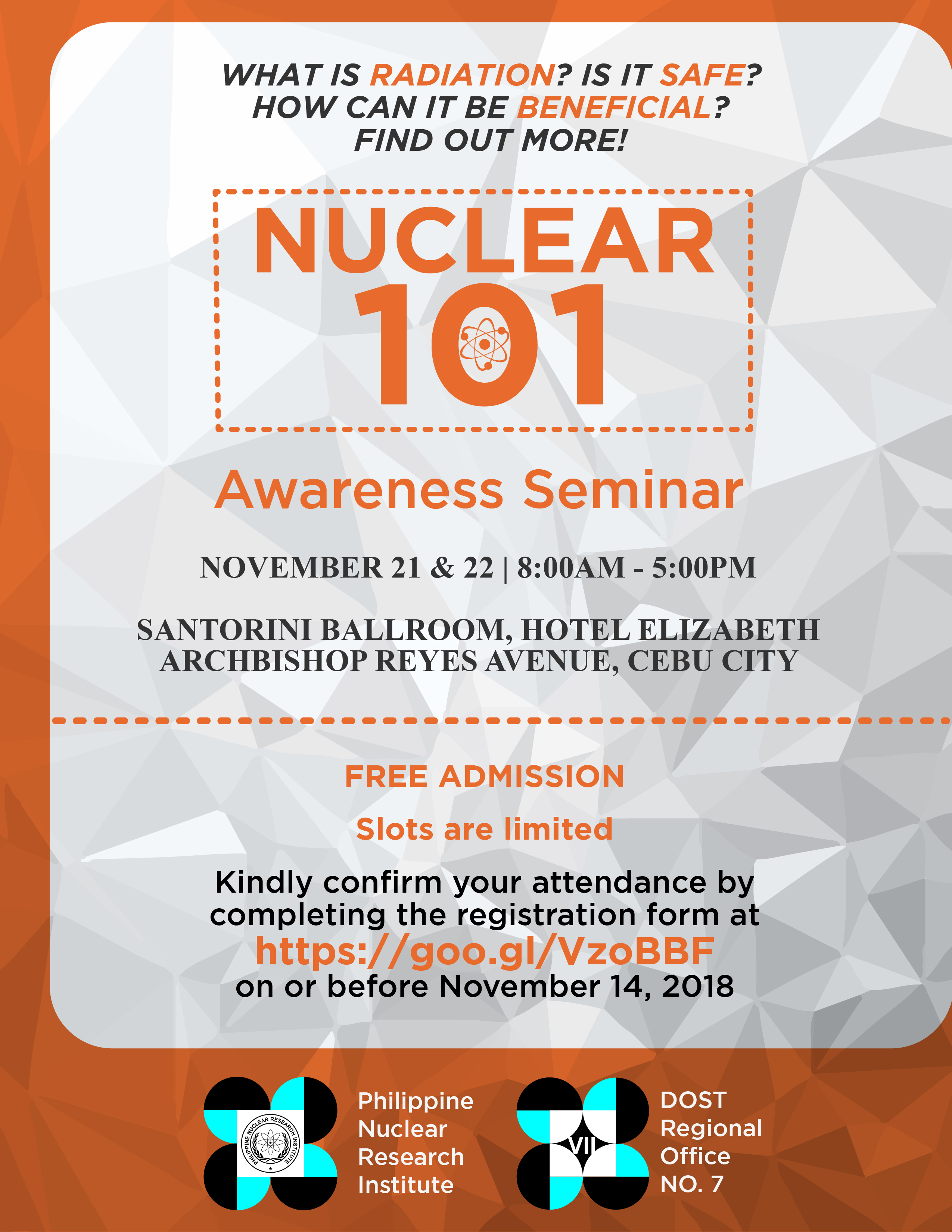
What is Radiation? Is it Safe? How can it be Beneficial? Find out more!
Nuclear 101 Awareness Seminar
November 21 & 22 | 8:00AM - 5:00PM
SANTORINI BALLROOM, HOTEL ELIZABETH, ARCHBISHOP REYES AVENUE, CEBU CITY
FREE ADMISSION
Slots are limited
Kindly confirm your attendance by completing the registration form at https://goo.gl/VzoBBF on or before November 14, 2018
The DOST-PNRI will provide meals, information kits and certificates for the seminar participants.
The seminar objectives and program may be viewed or downloaded at https://goo.gl/QMiBvx.
Rich and Healthy Food Crop Harvests During Carrageenan PGP Testing in Provinces
- Details


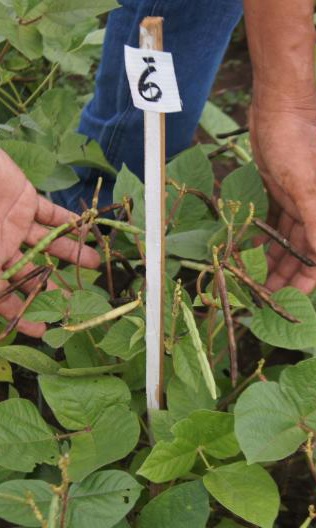
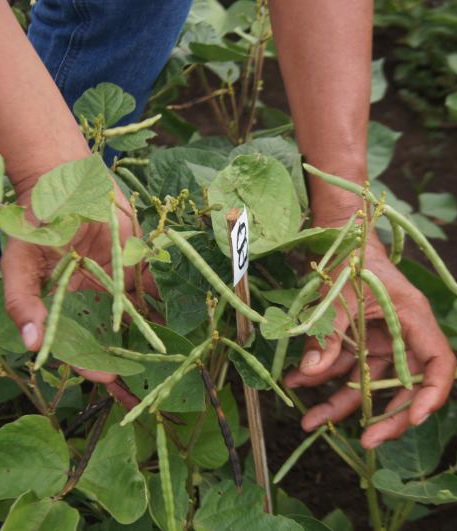
Carrageenan PGP (top photo) increases the yield of crops and improves the agronomic traits of plants. The experimental crops sprayed with PGP (right for corn and mungbean) were compared with the control crops (left for corn and mungbean). (Photos from DOST Region 2).
Rich and Healthy Food Crop Harvests During Carrageenan PGP Testing in Provinces
From Cagayan up north to Davao down south, farmers and agriculturists are awed by the bountiful yield of food crops during the on-going field trials of the Carrageenan Plant Growth Promoter (PGP).
Developed by scientists from the Department of Science and Technology – Philippine Nuclear Research Institute (DOST-PNRI) in cooperation with the University of the Philippines – Los Baños National Crop Protection Center (UPLB-NCPC) and the DOST – Philippine Council for Agriculture, Aquatic and Natural Resources Research and Development (PCAARRD), the radiation-processed formula was set for field trials by the Department of Agriculture (DA) since 2015 to cover several provinces in Luzon, Panay Island, Zamboanga and Davao.
More than two years into the trial period, the results proved to be very fruitful, as the Carrageenan PGP was able to produce healthier crops and more productive hectares of farmland for rice and mungbean, which were among the first to be tested.
Around 2,500 farmers in Davao are conducting trials in more than 20,000 hectares of rice farmlands until 2019, aiming to increase rice productivity by up to 34% by 2020, according to DOST Region 11.
Mungbean field trials in Central Luzon, Cagayan Valley and Northern Mindanao showed increased yields from 50 to 150 percent, by supplementing Carrageenan PGP with the usual farmers’ practices.
Meanwhile, DOST-PNRI has also expanded the Carrageenan PGP testing to other food crops, particularly in Isabela, where the first field tests for corn were conducted. Researchers from the DOST-PNRI and DA regional offices found larger cobs and healthier root structures among the corn crops sprayed with the solution.
Farmers all over the Philippines are looking forward to seeing the Carrageenan PGP released in the market in the near future.
Utility Model Award for PNRI Researchers
- Details
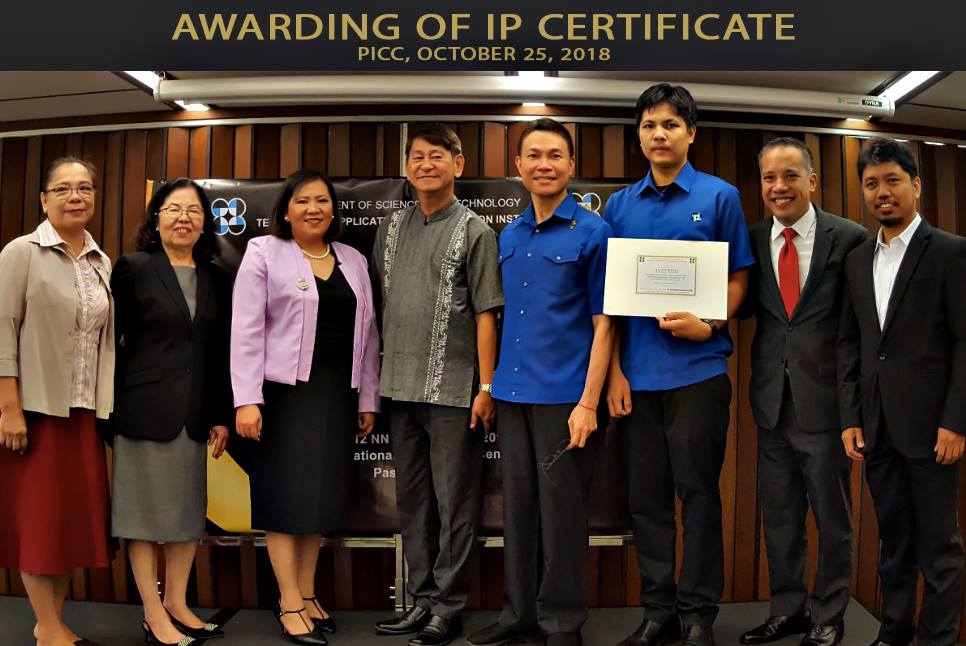
Congratulations to members of the PNRI Isotope Techniques Section for the Utility Model on the "Method for Pretreating Alumina for Chromatographic Separation in Radionuclide Generator" with the IP certificate awarded on October 25, 2018 at the Philippine International Convention Center, Pasay City.
(Photo by G. Ciocson, DOST-PNRI)












































